Wellbeing
Amanda Wilson | Assistant Principal

Wellbeing
Amanda Wilson | Assistant Principal
John Ensabella ((Year 2 teacher) and Michelle Fernandez (Year 4 teacher)
In Term 4 at Hampton Primary School, our RRRR focus is Stress Management (Topic 5). It is important that students receive instruction on this topic as there is a strong evidence base showing its positive long-term impact. Students who can identify and develop positive coping skills to manage a range of stressors in their lives experience improved mental health and overall wellbeing. This topic will be particularly relevant as all students look towards the end of year and transitioning to a new year level or school.
Foundation
In Foundation, it is integral that students learn about stress management so they are set up for success in developing coping skills for the rest of their schooling. In Foundation, students learn to:
Grades 1 & 2
In Grades 1 and 2, students are instructed on how to:
See below an example of a Stress Management lesson being taught in a Grade 2 classroom. Students are completing a “melting moments” activity aimed at providing them with stress management and relaxation tools to use before bed.
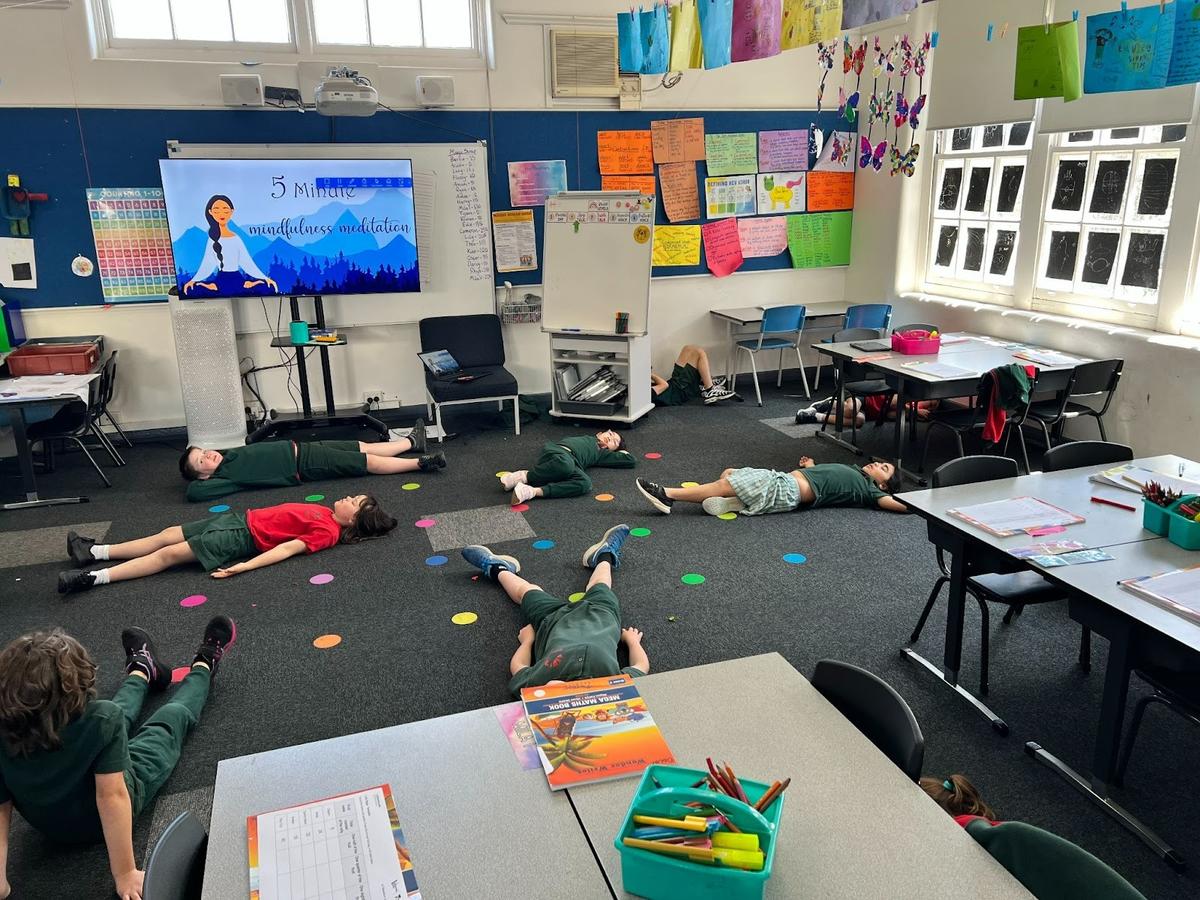

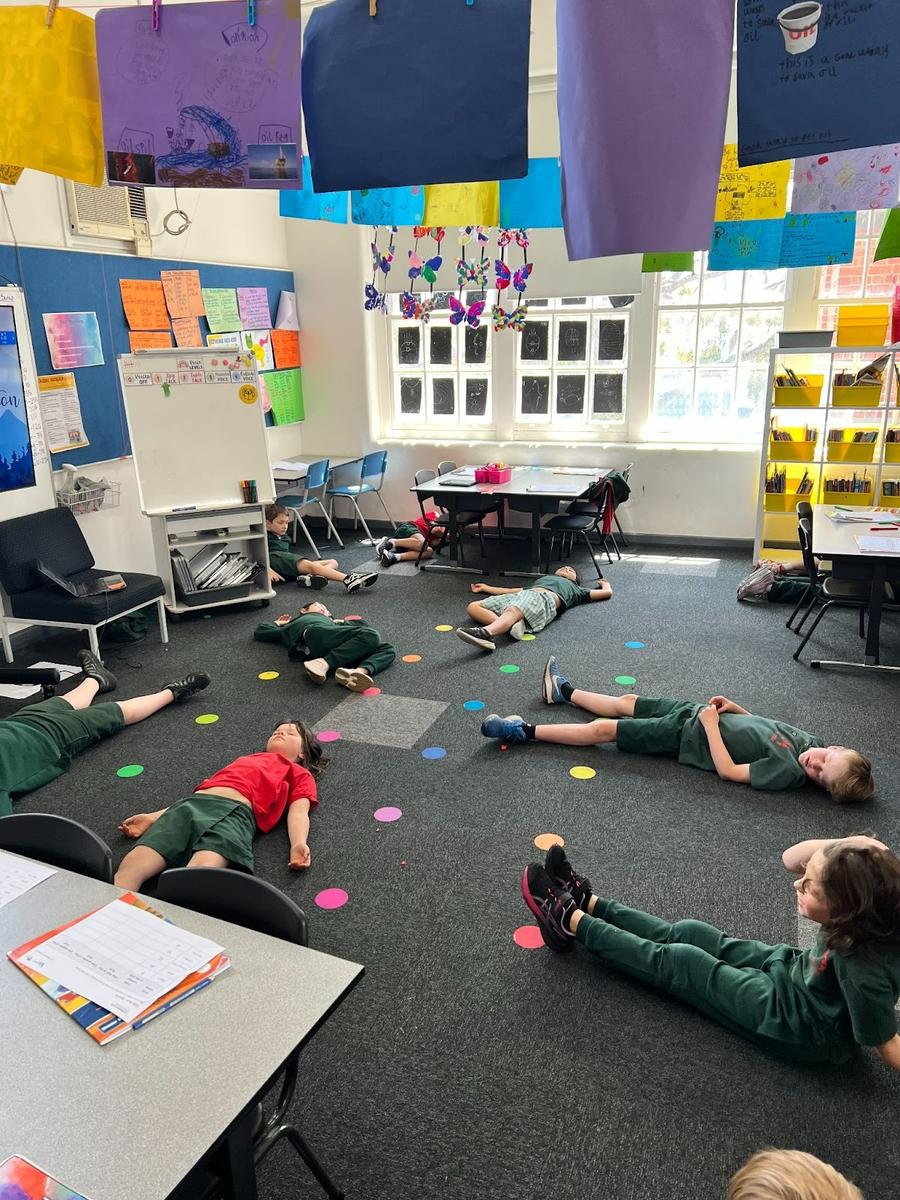

Grades 3 & 4
In Grades 3 and 4, students are instructed on how to:
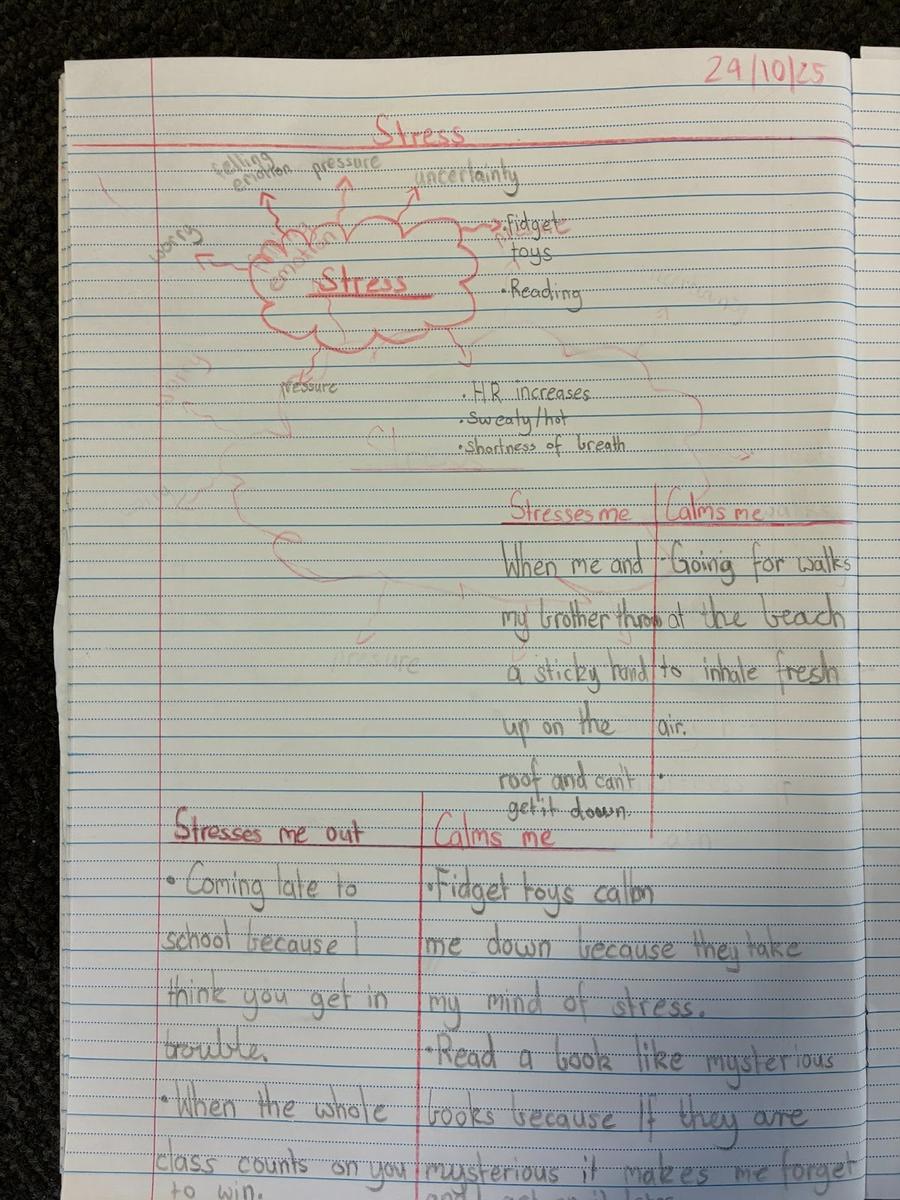

See below some work samples and student reflections from some Grade 3 and 4 classrooms, where students work to identify and reflect on challenging situations in their lives and employ calming strategies for those situations.
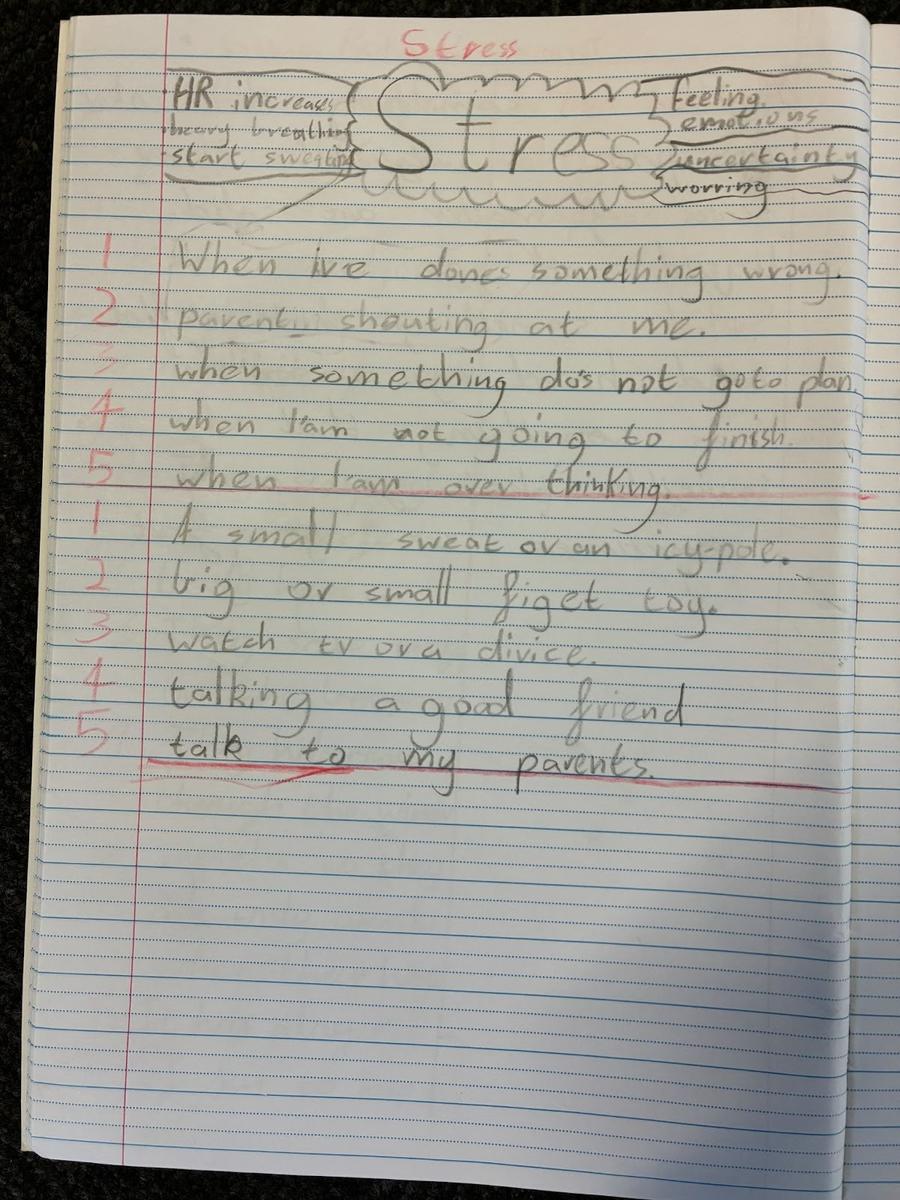

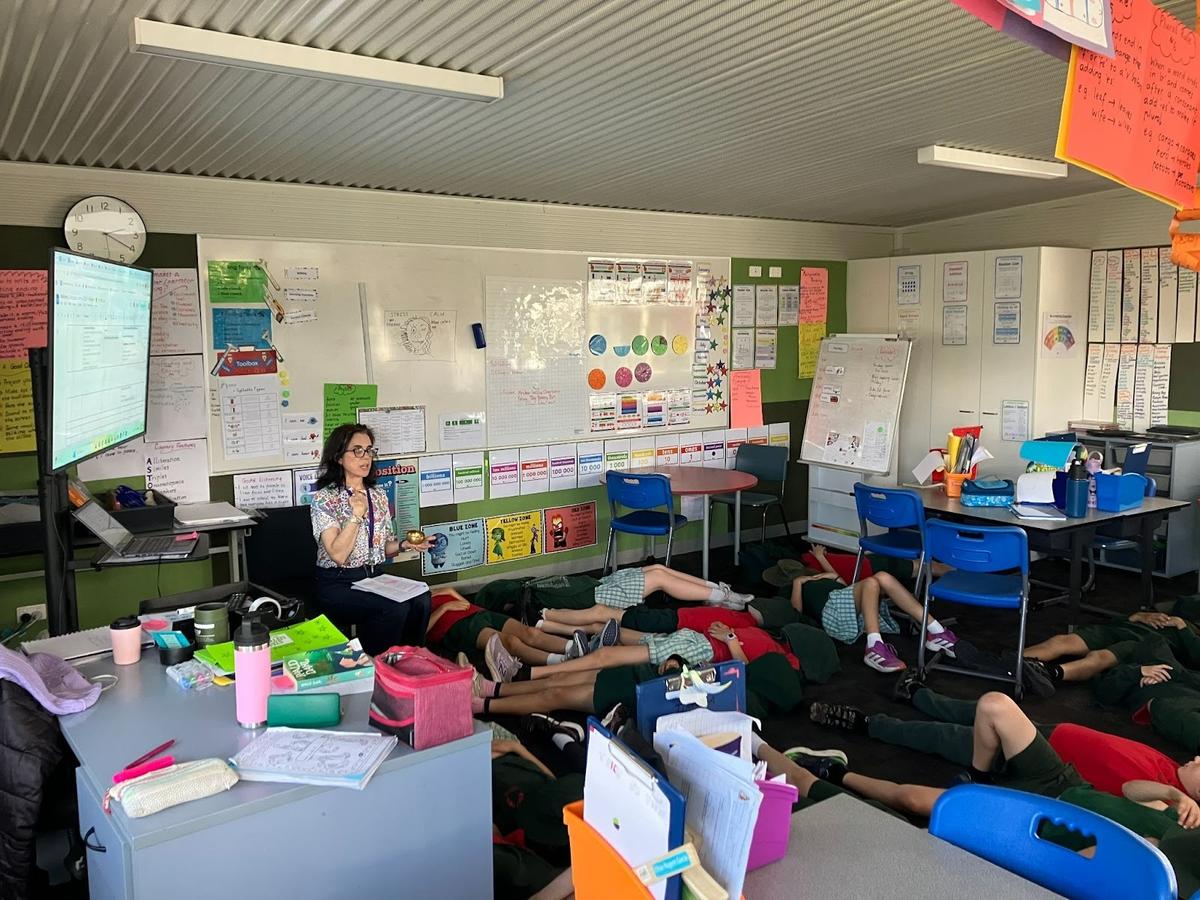

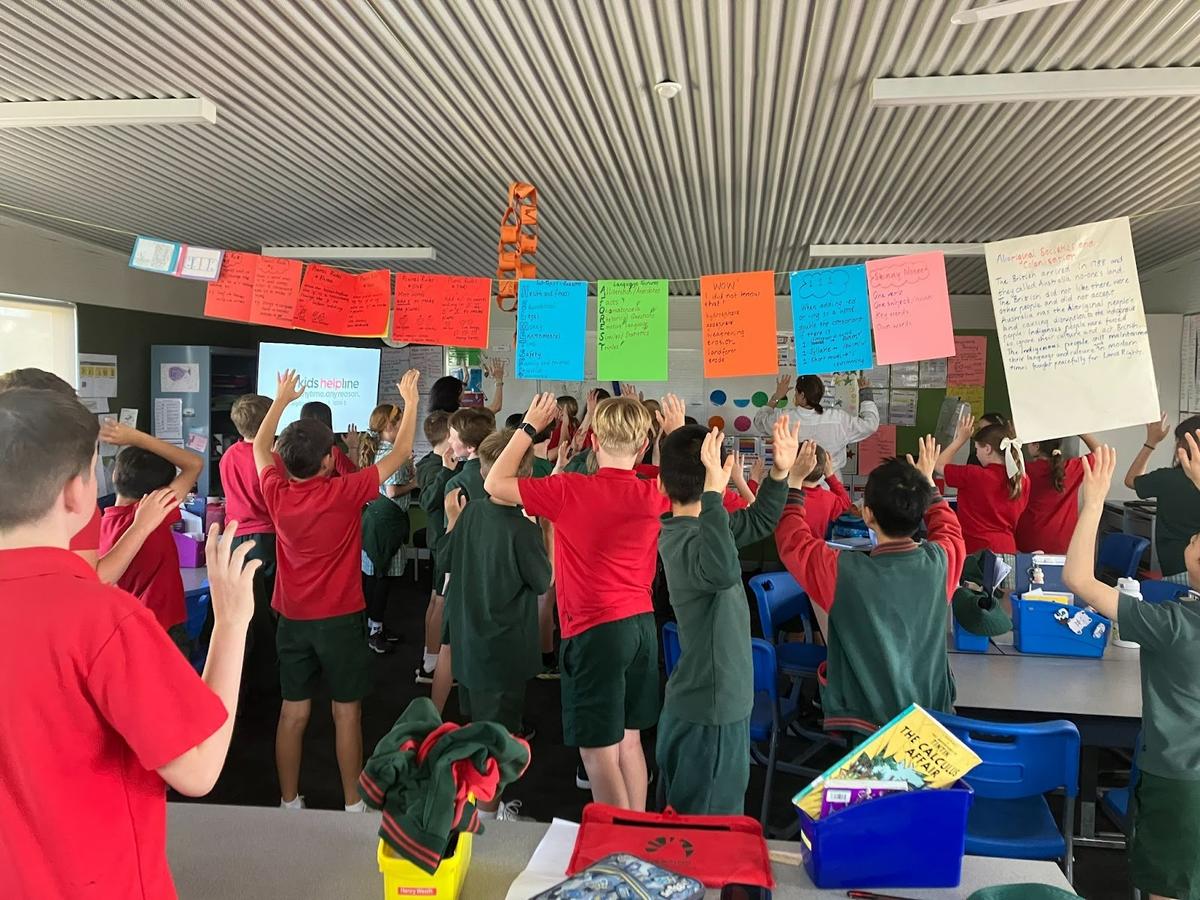

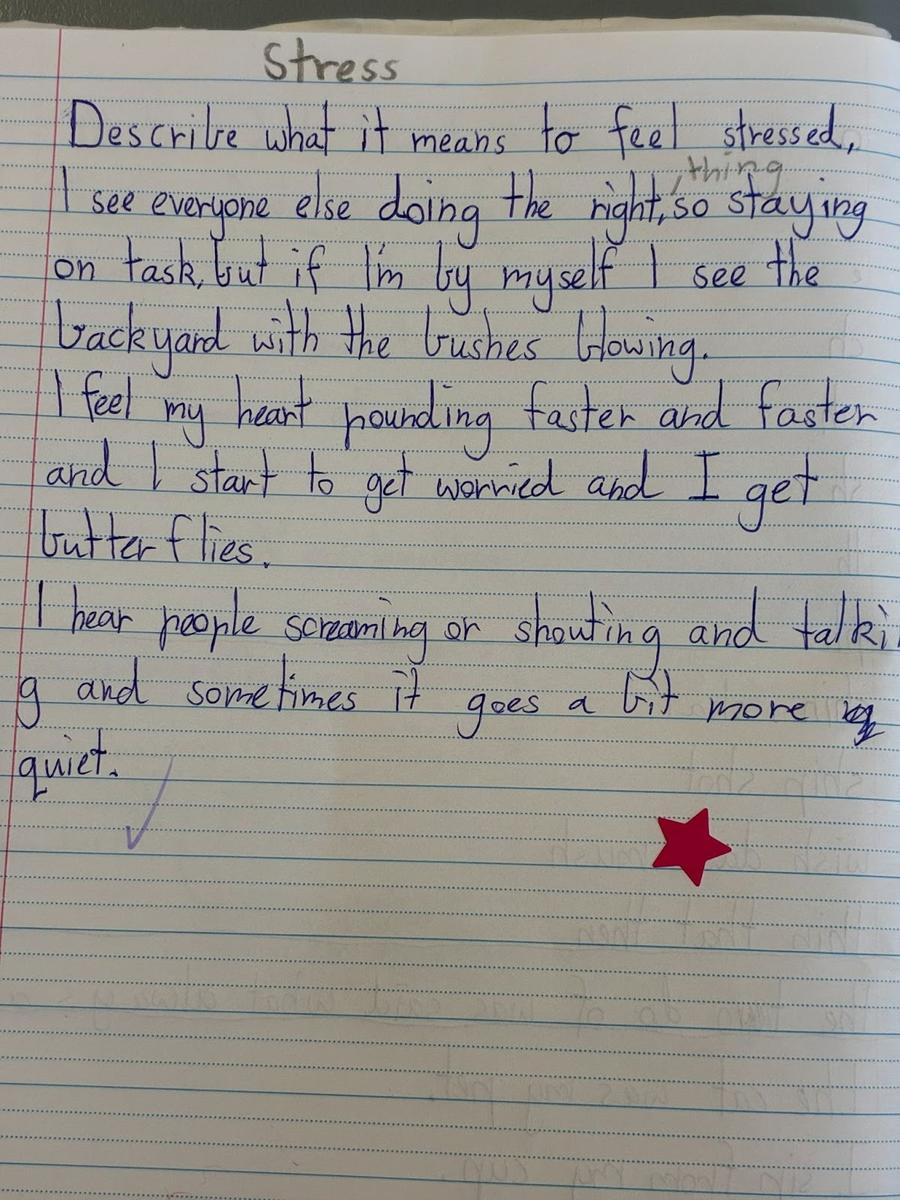

Grades 5 & 6
In Grades 5 and 6, students receive instruction on how to:
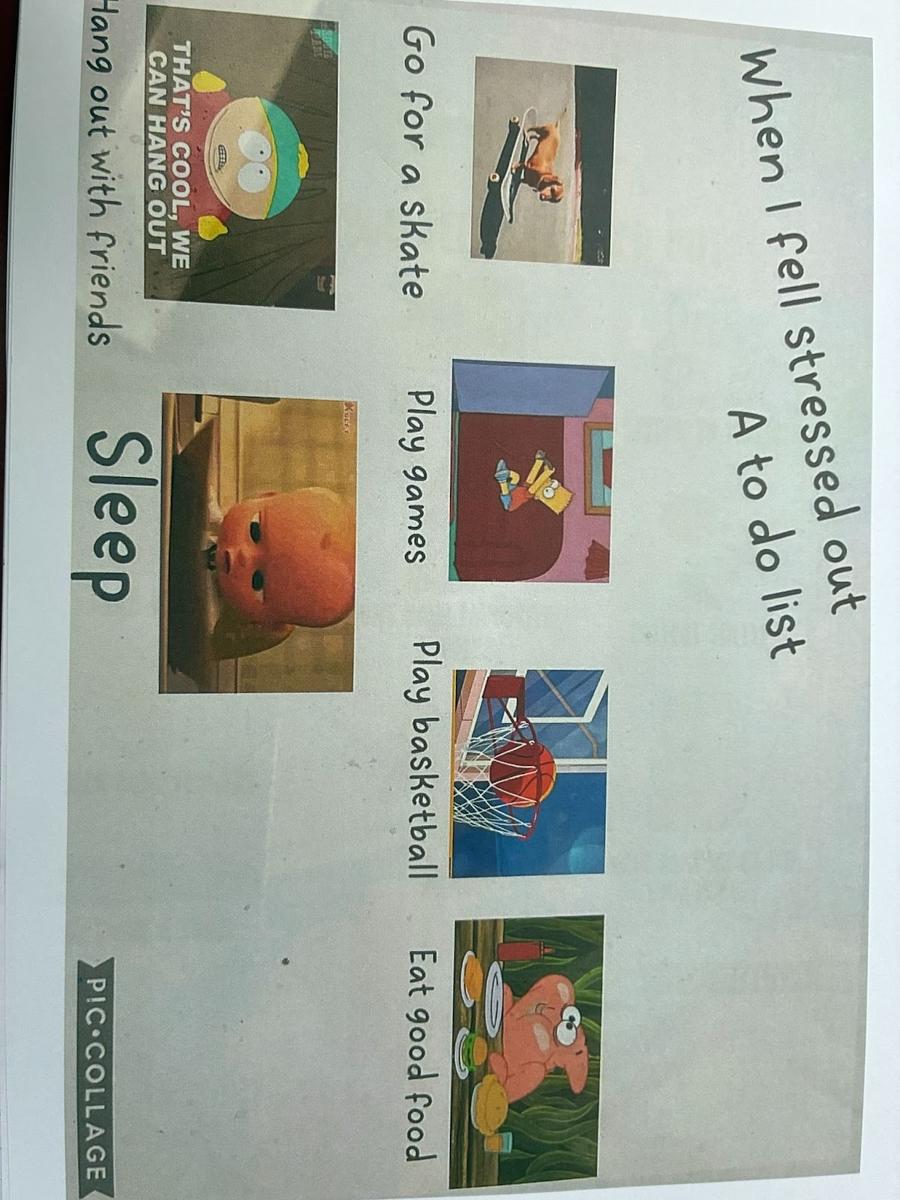

See below some work samples and student reflections from some Grade 5 and 6 classrooms, where students work to identify and reflect on challenging situations in their lives and employ calming strategies for those situations.
| Grade 5 student reflection |
What is stress? Stress is when you feel overcome by a powerful emotion and it seems like the world is ending but really it’s just a moment where you feel anxiety but it’s ok to feel that way you just need to know how to handle it. Is stress a good thing or a bad thing? For most it can seem like the worst thing ever but look at the bright side, if you get stressed you tend to focus more on the thing that you’re stressing about like if you’re stressed about finishing a test then you tend to focus more and complete it faster! What have I stressed over and how I overcame it: I have been extremely stressed whenever I do anything that involves public speaking, even if it’s answering a question in class I tremble but then I think “ why am I so scared? Nobody will remember this and if they do then I did something right! “ and when I think that all my nerves float away! Even if I’m still a bit nervous I tend to push through. |
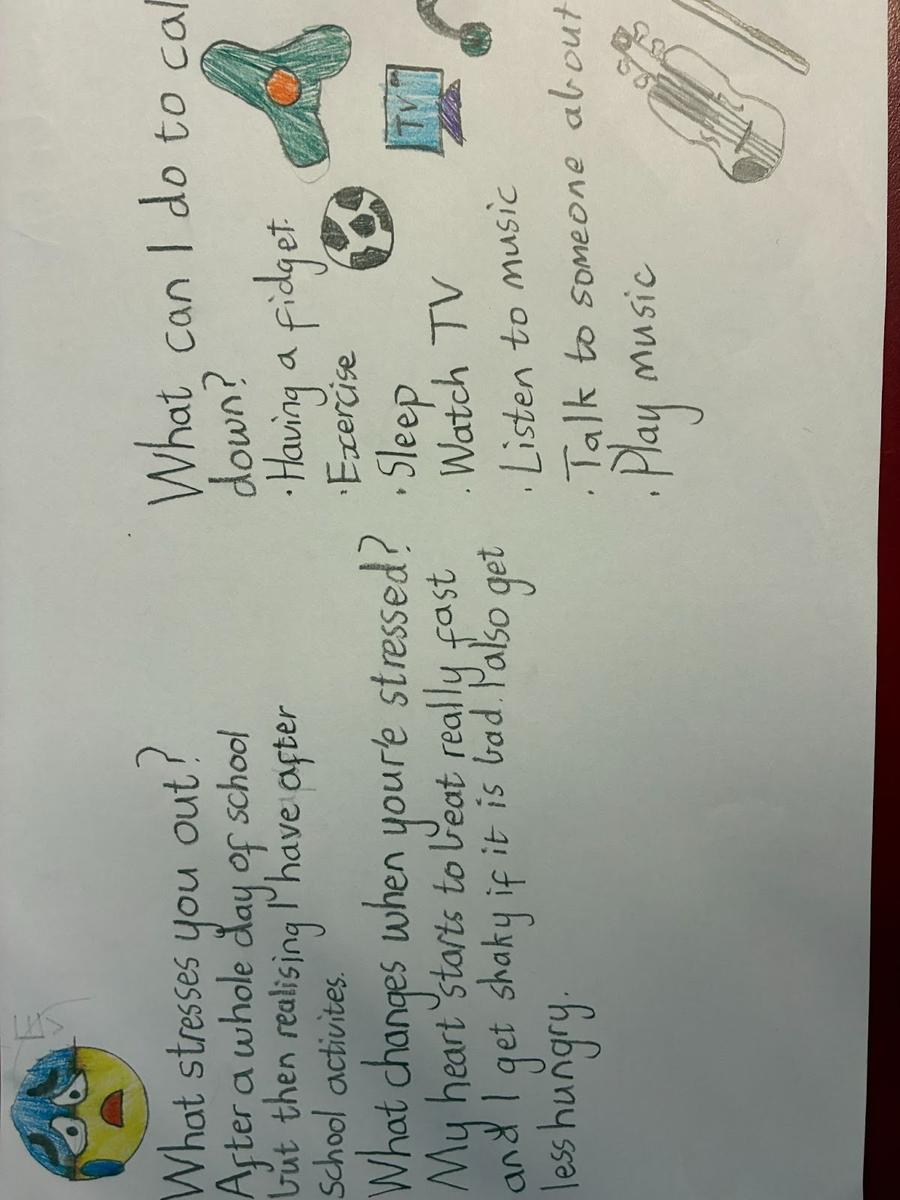

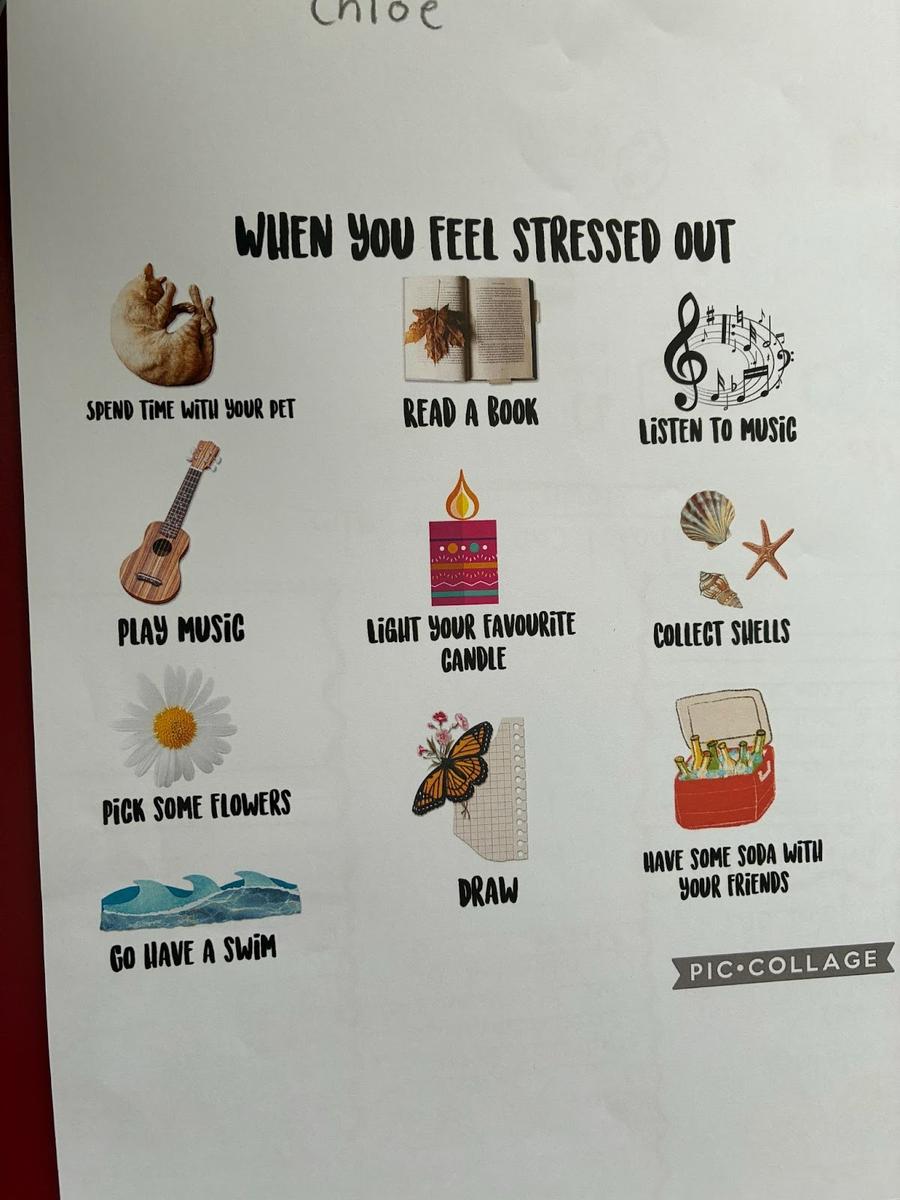

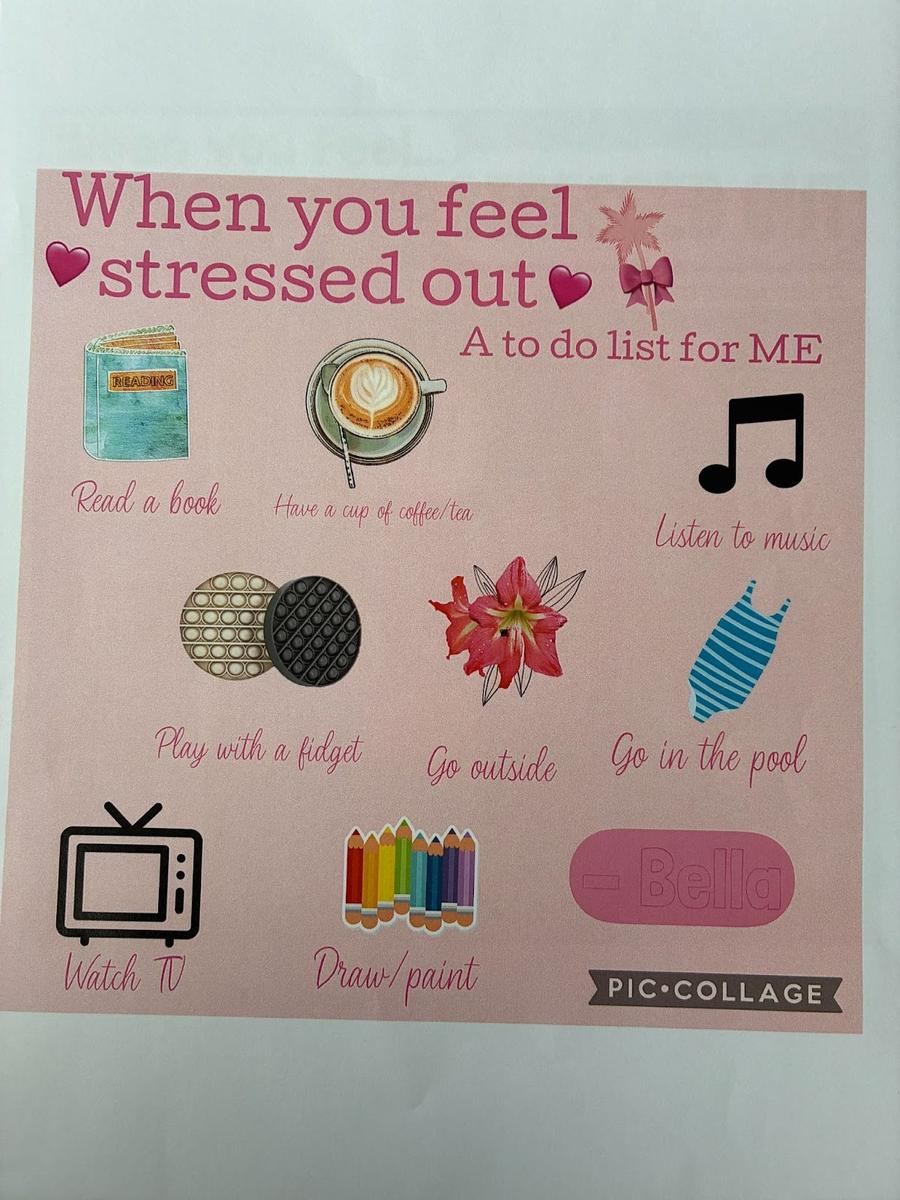

Week 6
‘We use the correct volume for the space that we are in’
At school, we use different voices for different spaces and situations. Just as we use our “inside voice” in the classroom so everyone can learn, we use quiet and respectful voices in shared areas like the library, office, and corridors. In the playground, it’s fine to use a louder voice for games and play—but even then, we still remember to speak kindly and think about others nearby.
Learning to adjust our voice helps create a calm, respectful and safe environment for everyone.
Families can support this at home by talking about when it’s time for a quiet voice and when it’s okay to be a little louder.
Week 7
We use kind words and speak politely.
We always tell the truth.
At our school, we value honesty and kindness in everything we do. Using kind words and speaking politely helps everyone feel respected and included. It’s important to think before we speak and choose words that make others feel good. We also remember to always tell the truth, even when it’s hard. Being honest helps us build trust with our friends, teachers, and families. When we are kind and truthful, we create a caring school community where everyone feels safe and valued.
At home, families can support this by encouraging children to practise polite greetings, use “please” and “thank you,” and talk about how their words can make others feel. Families can also help children understand the importance of honesty by celebrating moments when they tell the truth and using gentle conversations to talk about mistakes or unkind words. Working together, we can help children grow into thoughtful, respectful, and trustworthy people.